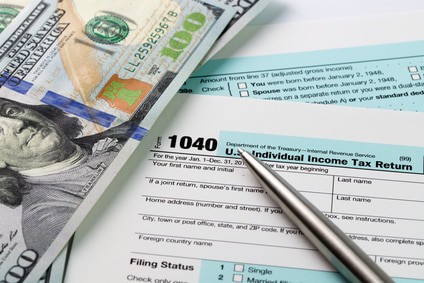Tax Returns and mortgages – not always a match made in heaven. However, when analyzed and utilized correctly and the Tax Return bite is not near the fury of it’s bark!
Apply for a Home Loan
Team@JeremyHouse.com
602.435.2149
Tax Returns and Home Loan Pre-Approval
Understanding Tax Returns is the key to a successful home loan experience. Why do tax returns exist? What is the purpose behind filing income tax returns? Most importantly, are tax returns even required on every loan application?
First and foremost, Tax Returns do not show the IRS how much money you made last year. Instead, Federal Tax Returns verify the amount of tax owed to the IRS. Income and taxable income are 2 VERY different figures. A 73,000+ page document authored by Uncle Sam explains how the IRS determines the taxable portion of your hard-earned income.
Typically, your total annual earnings exceed the income you pay tax on. IRS approved expenses and allowances reduce gross income down to taxable income. For example, un-reimbursed business expenses, depreciation and child care expenses are just a sampling of tax deductions. The list of IRS permitted tax deductions is long and complex. In reality, Federal Tax Returns are confirm how much tax you owe – not how much money you made.
Do Mortgage Lenders Use Tax Returns to Calculate Income?
Every home-buyer does not have to hand their Federal Income Tax Returns to their lender. In fact, with the above understanding of why Tax Returns exist you may be asking why on earth would a lender ever need a Federal Tax Return? After-all, Tax Returns are only for figuring taxes not income right?
Mortgage lenders calculate actual income received using Federal Tax Returns. For example, self employed and highly commission based employees must supply tax returns when applying for a home loan. They both pay real business expenses out of their income. As a result, the expenses decrease the income they actually have access to.
Apply for a Home Loan
Team@JeremyHouse.com
602.435.2149
Expenses that Reduce Income
Picture a self employed borrower earning $400,000 in “income” (really “revenue”). That borrower also pays $250,000 in rent, cost of goods and wages in a given year. Their tax return reveals a $20,000 tax deduction for depreciation.
Rent, cost of goods sold and wages are true expenses that reduce the borrowers income. On the other hand, Depreciation does not. The borrower did not pay a Depreciation expense. Instead, the IRS simply allows it as a tax deduction.
Lenders analyze true expenses versus “paper” expenses on tax returns. In the end, a mortgage lender gains a clear picture of a self employed borrower’s true income. In the above example, depreciation is added back to the borrower’s income. Rent, cost of goods sold and wage expenses are not.
What impacts taxable income may not impact actual income
For mortgage lenders, a Federal Tax Return is a validation of both income and expenses. Lenders recognize certain tax deductions cut taxable income but do not reduce actual income. Business mileage, depreciation and one-time expenses are just a few examples.
Rule of thumb:
- Tax deductions that cost the borrower money are subtracted from gross income on a mortgage application
- Tax deductions with no actual cost to the borrower are added back to income on a mortgage application
By Jeremy House

